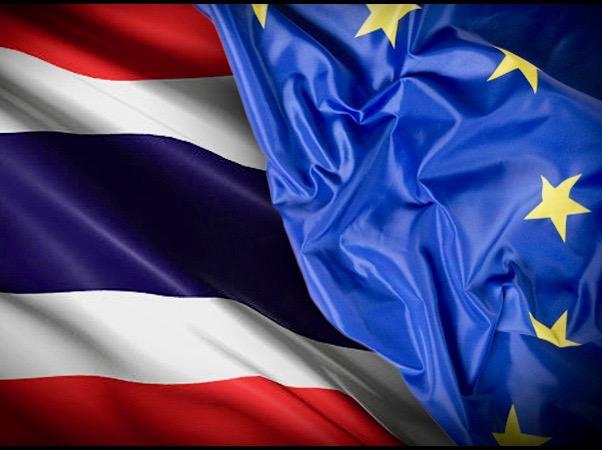The aim of the FTA will be to boost trade and investment by addressing a wide range of issues such as: market access for goods, services, investment and government procurement; swift and effective Sanitary and Phyto-Sanitary procedures; the protection of intellectual property rights including Geographical Indications, and the removal of obstacles to digital trade and trade in energy and raw materials, thereby supporting the digital and green transitions. Sustainability will also be at the heart of this agreement, with robust and enforceable disciplines on Trade and Sustainable Development (TSD). These will be in line with the Commission's TSD review Communication of June 2022, supporting high levels of protection for workers' rights, for the environment, and the achievement of ambitious climate goals.
Key trade facts
The EU and Thailand already have well-established trade relations, with clear potential for an even closer relationship:
- Trade in goods was worth over €42 billion in 2022, while trade in services was worth over €8 billion in 2020.
- The EU is Thailand's 4th largest trade partner.
- Thailand, the second largest economy in the ASEAN region, is the EU's 4th most important trading partner in the region (and 25th worldwide).
- The EU is the 3rd largest investor in Thailand, representing around 10% of total Foreign Direct Investment (FDI) in the country, and the 2nd largest destination of Thai FDI, accounting for nearly 14% of total Thai FDI.
Despite the high ranking of the EU in Thailand's total trade and FDI, the EU is under-represented in terms of key investors in innovative sectors, including clean and renewable energies, electric vehicles, and critical goods like microchips. Infrastructure and the shift to a technology- and innovation-driven economy are key priorities in Thailand's economic development strategy, representing further potential for EU investors and businesses.
Next steps
The EU and Thailand are committed to advancing swiftly in the FTA talks and aim to hold a first substantive round of negotiations in the coming months. The EU text proposals will be published after the first negotiating round, in line with our exemplary transparency policy. The EU will also commission a Sustainability Impact Assessment in support of the negotiations, to carry out an analysis of the possible economic, environmental, human rights and social impacts of the agreement, and to provide recommendations on how to maximise the expected positive effects, whilst minimising potential negative ones.
Background
The EU and Thailand first launched negotiations for an FTA in 2013. These were put on hold in 2014, following the military takeover in the country. In 2017 and 2019, in light of Thailand's advances on the democratisation process, the Council adopted Conclusions putting forward an approach of gradual re-engagement, which culminated in the signature of the Partnership and Cooperation Agreement in December 2022.
Regarding trade, the 2017 and 2019 Council Conclusions called on the Commission to explore the possibility for resuming FTA talks with Thailand and stressed the importance of taking steps in that direction. The 2021 EU Indo-Pacific Strategy further confirmed the EU's longstanding interest in resuming FTA negotiations with Thailand. The EU already has state-of-the-art FTAs in place with two ASEAN countries - Singapore and Vietnam.
